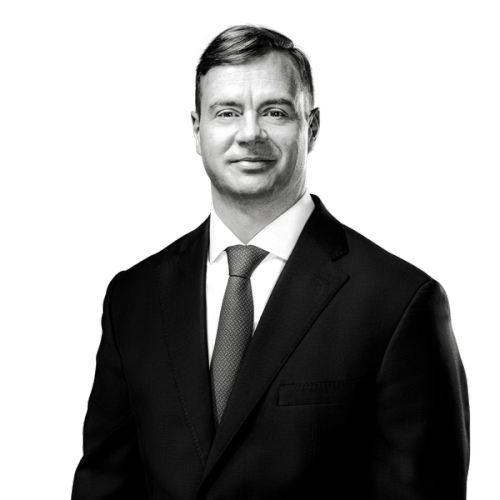Pandemic has had a noticeable impact on exits at PE funds
November 25, 2021
- New Insight

The pandemic has had a noticeable impact on exit decisions and holding periods of private equity funds in German-speaking countries. In a recent survey by consultancy FTI-Andersch and the Center for Corporate Transactions and Private Equity (CCTPE) at HHL Leipzig Graduate School of Management, 56 percent of the PE funds surveyed said that COVID-19 had 'strongly' influenced their decision, with four percent even saying 'very strongly'. For the future, 68 percent of respondents expect the holding period to lengthen (nine percent: to lengthen considerably).
- Early exits to minimize risk have played little role
- 78 percent have focused on digitalization and increasing productivity
- Supply chain optimization seen by 87 percent as top post-Corona challenge
39 percent of PE firms provided additional money from the fund to their portfolio companies during the pandemic months. In 35 percent, restructuring plans were adjusted to a new holding period. Accelerated exits to minimize downside risk, including accepting losses, played a role in only nine percent of the companies. The transfer of portfolio investments to a successor fund (roll-over) took place in four percent of the cases.
The majority of exit channels are expected to remain constant over the next twelve months. However, PE funds see slight increases in IPOs (36 percent), sales to strategic investors and SPACs (32 percent each). 55 percent expect slight increases in sales to other funds (secondary buyout).
"The pandemic months have left a discernible mark on the PE industry," says Dr. Martin Schneider, private equity expert at FTI-Andersch and one of the authors of the study. "What was already indicated in last year's study has now been confirmed: the holding period has lengthened in many cases. The adjustment of the value enhancement plans projected last year has thus become necessary in many cases. In recent months, the PE companies have also actively supported their portfolio companies in implementing measures to secure their long-term success."
Funds have focused the majority of operational measures on digitalization and productivity enhancement
Together with their operational management, the funds have placed a particular focus on measures to digitise and increase productivity: Half of the funds have worked on this 'strongly', 28 percent even 'particularly strongly' (total: 78 percent). Other points on which the funds focused: optimisation of working capital ('strongly' to 'particularly strongly': 67 percent), customer loyalty programmes and service (53 percent), product innovations and financial management measures (50 percent each). Less emphasis was placed on expansion into existing and new markets (37 percent) and on measures to improve quality (32 percent).
Martin Schneider says: "It is pleasing to see that the funds have not only focused on cost-cutting and cost-saving measures but have also deliberately promoted digitalisation and innovation in their portfolio companies. This means that a significant number have also used the crisis to make their own portfolios even more future-proof – and thus potentially more valuable."
A quarter of the funds performed better under Corona than before
Just under one in four funds (24 percent) indicated that their own portfolio companies had actually outperformed over the past twelve months. In particular, the changes in customer and user behaviour brought about by the pandemic have had a strong (45 per cent) or 'particularly strong' (15 per cent) positive impact. Half of the funds that fared better in the pandemic also ranked mobile working as a strong (50 percent) or even 'particularly strong' success factor (5 percent). Forty percent also said that societal measures to contain the pandemic, including the lockdown, have had a positive impact on them.
"What we observe in the funds mirrors to some extent our observations of the overall economy," says Martin Schneider. "Only a minority – quite significant – wins. And this is mainly because the lockdown months and the resulting change in customer demand patterns have given them a positive boost. The challenge for the portfolio companies in these funds will be to continue to maintain their performance in the post-Corona period."
Future focus on supply chain optimization and preventive crisis management – more control only planned by a minority
The PE funds surveyed cited optimizing their supply chains (87 percent) and a focus on preventive crisis management (83 percent) as the biggest challenges for this post-Corona era. Fifty-seven percent of funds observed that at least half of their portfolio companies had encountered supply chain challenges, and for one in four (26 percent) it was more than half. Other post-Covid issues: 50 percent focus on increased transparency in stakeholder communication, half see a need for action in adjusting value creation plans (see above). Only a minority (29 percent) want to make portfolio company reporting tighter and more comprehensive in the future in order to gain even more insight into operational management decisions.
"It's a good signal that PE funds want to focus primarily on creating new value rather than more control," says Professor Dr. Bernhard Schwetzler, holder of the Chair of Financial Management and Banking at HHL Leipzig, who was the scientific director of this study. "And that the realization has taken hold that prevention must be significantly intensified in the future in order to be better prepared for possible threat scenarios in the future. When we first conducted this research a year ago, one assumption was that funds would tighten the reins on management significantly. The fact that a majority of them decide against more bureaucracy is a vote of confidence and immediately gives them the opportunity to solve the real problems. The fact that these are now mainly in the supply chains is immanent: this problem has now fully taken hold in all sectors and thus also in the portfolios of German funds. It remains to be seen whether this will already be another factor leading to a renewed adjustment of the appreciation plans."
About the study:
The study 'Impact COVID-19 on PE Portfolio Companies 2021' has been developed in cooperation between the consultancy FTI-Andersch and the Center for Corporate Transactions and Private Equity (CCTPE) at HHL Leipzig Graduate School of Management. It follows a study that was carried out back in 2020.
It was possible to evaluate the responses of a total of 36 PE funds based in the DACH region on their current situation in the Corona crisis. The focus was on PE funds with active portfolios of more than ten companies (61 percent, mid-cap). The survey was conducted anonymously and with standardized questions according to academic standards. The heads of the investigation are Dr. Martin Schneider (Senior Manager) from FTI-Andersch as well as Prof. Dr. Bernhard Schwetzler, Chair of Financial Management and Banking at HHL Leipzig.
About FTI-Andersch:
FTI-Andersch is a management consultancy that supports its clients in the development and implementation of sustainable future/performance and restructuring concepts. FTI-Andersch actively supports companies that have to deal with operational or financial challenges – or want to align their business model, organisation and processes for the future at an early stage.
Our clients include in particular medium-sized companies and corporate groups that operate internationally. FTI-Andersch is part of the internationally active FTI Consulting Group (NYSE: FCN) with more than 6,400 employees.
www.andersch-ag.de
About the Center for Corporate Transactions & Private Equity (CCTPE):
CCTPE is a renowned think tank for private equity buyouts at HHL Leipzig Graduate School of Management - one of the leading business schools in Europe. The aim of the think tank is to promote high-quality research results and to provide a platform for renowned scientists and industry experts. The CCTPE was launched in 2017 with the support of numerous institutions, including.a. by FTI-Andersch, Astorius, AssetMetrix, CARLSQUARE, EY, Hauck & Aufhäuser, Nordic Capital, Palero Capital, Skadden, Arps, Slate, Meagher & Flom, The Boston Consulting Group and ValueTrust Financial Advisors.
https://www.hhl.en/facultaet-research/research/centres-of-competence/cctpe/
Your Contacts
 Dr. Martin Schneider
Dr. Martin SchneiderPartner